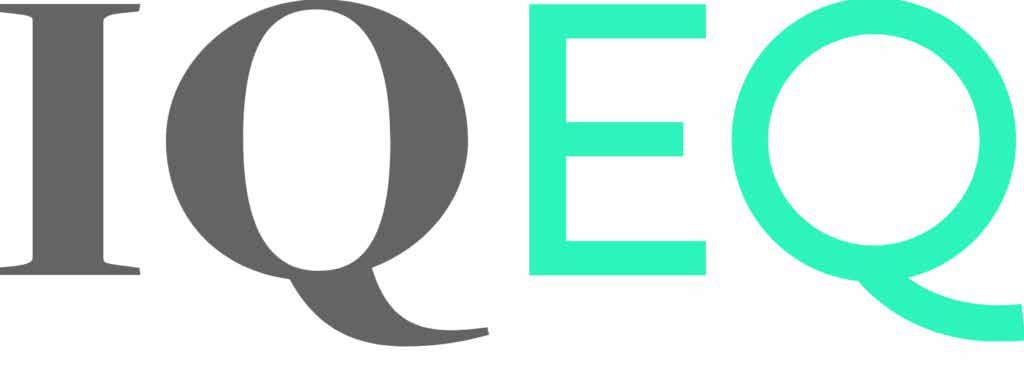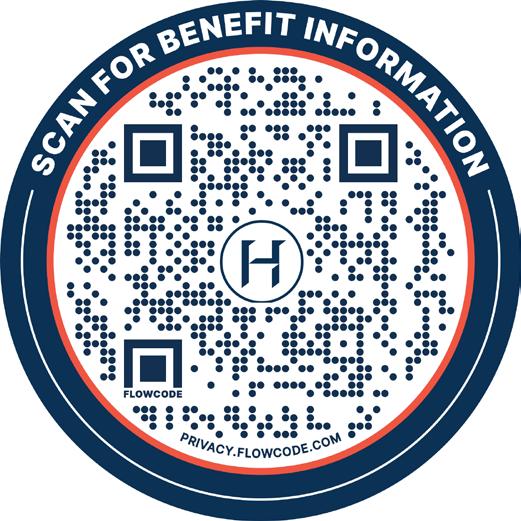

















We are pleased to offer a comprehensive benefits package intended to protect your well-being and financial health. This guide is your opportunity to learn more about the benefits available to you and your eligible dependents beginning January 1, 2026.
Each year during Open Enrollment, you have the opportunity to make changes to your benefit plans. The enrollment decisions you make this year will remain in effect through December 31, 2026. To get the best value from your health care plan, please take the time to evaluate your coverage options and determine which plans best meet the health care and financial needs of you and/or your family. After Open Enrollment, you may make changes to your benefit elections only when you have a Qualifying Life Event.
You are eligible for benefits if you are a regular, full-time employee working an average of 30 hours per week. Your coverage is effective the first of the month following your date of hire. You may also enroll eligible dependents for benefits coverage. The cost to you for dependent coverage depends on the number of dependents you enroll and the particular plans you choose. When covering dependents, you must select and be on the same plan.
Your benefits program offers three medical plan coverage options. To help you make an informed choice and compare your options, a Summary of Benefits and Coverage (SBC) for each plan is available at www.benefitsinhand.com
Your legal spouse and domestic partner
Children under the age of 26, regardless of student, dependency, or marital status
Children over the age of 26 who are fully dependent on you for support due to a mental or physical disability and who are indicated as such on your federal tax return
Your benefit elections remain in effect for the entire plan year until the following Open Enrollment. You may only change coverage during the plan year if you have a Qualifying Life Event, and you must do so within 30 days of the event:
Marriage, divorce, legal separation, or annulment
Birth, adoption, or placement for adoption of an eligible child
Death of a spouse or child
Change in your spouse’s employment that affects benefits eligibility
Change in your child’s eligibility for benefits (e.g., reaching the age limit; loss of coverage under Medicaid or CHIP)
Change in residence that affects your eligibility for coverage
Significant change in benefit plan coverage or cost for you, your spouse, or your child
FMLA leave, COBRA event, court judgment, or decree
Becoming eligible for Medicare, Medicaid, or TRICARE
Receiving a Qualified Medical Child Support Order
If you have a Qualifying Life Event and want to request a midyear change, you must notify Human Resources and complete your election changes within 30 days following the event . Be prepared to provide documentation supporting the Qualifying Life Event.
To begin the enrollment process, go to www.benefitsinhand.com First-time users, follow steps 1-4. Returning users, log in and start at step 5.
1. If this is your first time to log in, click on the New User Registration link. Once you register, you will use your username and password to log in.
2. Enter your personal information and Company Identifier of IQEQ and click Next
3. Create a username (work email address recommended) and password, then check the I agree to terms and conditions box before you click Finish.
4. If you used an email address as your username, you will receive a validation email to that address. You may now log in to the system.
5. Click the Start Enrollment button to begin the enrollment process.
6. Confirm or update your personal information and click Save & Continue.
7. Edit or add dependents who need to be covered on your benefits. Once all dependents are listed, click Save & Continue.
8. Follow the steps on the screen for each benefit to make your selection. Please notice there is an option to decline coverage. If you wish to decline, click the Don’t want this benefit? button and select the reason for declining.
9. Once you have elected or declined all benefits, you will see a summary of your selections. Click the Click to Sign button. Your enrollment will not be complete until you click the Click to Sign button.
Have questions about your benefits or need help enrolling? Call or text the Employee Response Center at 833-433-IQEQ (4737) Benefits experts are available to Monday through Friday, 7:00 a.m. to 6:00 p.m. CT.
Employee benefits can be complicated. The Higginbotham Employee Response Center can assist you with the following:
Enrollment
Benefit information
Claims or billing questions
Eligibility issues
Call or text 833-433-IQEQ (4737) to speak with a representative Monday through Friday from 7:00 a.m. to 6:00 p.m. CT. If you leave a message after 3:00 p.m. CT, your call or text will be returned the next business day. You can also email questions or requests to helpline@higginbotham.net
Bilingual representatives are available.

The medical plan options through Cigna protect you and your family from major financial hardship in the event of illness or injury. You have a choice of three plans:
HSA Base Plan – This plan is an HDHP with an in-network $3,500 individual/$7,000 family deductible.
Core Plan – This plan is an OAP with an in-network $2,500 individual/$5,000 family deductible.
Buy-Up Plan – This plan is an OAP with an in-network $500 individual/$1,000 family deductible.
The HDHP allows you the freedom to see any provider when you need care, but you will pay less if you use in-network providers. In exchange for a lower per-paycheck cost, you must satisfy a higher deductible that applies to almost all health care expenses, including those for prescription drugs. The plan pays 80% for in-network health care and prescription drug expenses once you meet your in-network deductible. Once you have met your in-network out-of-pocket limit, the plan covers all in-network services at 100%. If you enroll in the HDHP, you may be eligible to open a Health Savings Account (see page 12).
The OAP plans also allow you the freedom to see any provider when you need care. When you use in-network providers, you receive benefits at a discounted network cost. You may pay more for services if you use out-of-network providers. Innetwork office visits, urgent care visits, and prescription drugs are covered with a copay. Most other in-network services are covered at the coinsurance level.
When your benefits begin, you will pay 100% of your covered health services until you meet your deductible, which is the amount you pay before your health plan begins to pay a portion. Some health care services may require you to pay a copayment. This is a fixed amount that you will pay 100% of for some health care services, such as seeing a doctor. Once you reach your deductible, your health plan will pay a percentage of costs for your covered health care services. This is called coinsurance, and the amount you pay may vary by service (e.g., you pay 20% and the plan pays 80%). Your out-of-pocket limit is the most you will pay for health services in a plan year. Copayments and coinsurance count toward this limit. If you meet your out-of-pocket limit, your plan will then pay 100% of your health services.
V isit: www.mycigna.com C all: 866-494-2111

Mail Order Rx Up to 90-day supply
Generic – Tier 1
Preferred Brand – Tier 2
Non-preferred Brand –
*The amount you pay after the deductible is met.
Choosing the right health plan is one of the most important decisions you will make all year. That’s why Cigna created a benefits education website to make your pre-enrollment experience easier. Compare your plan options, get answers to benefits questions, and choose a plan that best fits your needs. Access the website anytime you need it, right from your computer or smartphone. For the optimal user experience, use a current browser version and clear your cache. Representatives are also available to assist you.
Cigna provides access to virtual care through MDLIVE, as part of your plan. This convenient method of care allows you to connect with a board-certified doctor via video or phone anytime. Visit www.mdlive.com or call MDLIVE at 888-726-3171 to talk with a doctor 24/7.
If you enroll in the HSA Base Plan or Core Plan, there is NO CHARGE to use MDLIVE services (in-network only).
Telemedicine services should only be used for minor conditions that are not life-threatening such as:
Cold
Flu
Rashes
Sore throats
Headaches
Stomachaches
Fever
Acne
Asthma
Back pain
Urinary tract infections
Cigna’s telephone service is staffed by clinicians who can help you make informed decisions about health issues. Clinicians can help you review home treatment options, follow up on a doctor’s appointment, or find the nearest in-network urgent care center.
To connect with experts at the Cigna Health Information Line, call the number on your Cigna ID card, go to www.mycigna.com, or use the myCigna app. This service is free and open 24/7/365.
Visit: www.mycigna.com
Download: myCigna app
Call: 800-CIGNA24 (244-6224)
Cigna One Guide makes it easier to be your healthiest in mind and body. By contacting the Cigna One Guide team, you get personalized, proactive customer service support. Anytime day or night, the team will help you:
Resolve health care issues
Save time and money
Understand your benefit plan
Find in-network providers
Get cost estimates
Understand billing
Connect with dedicated support for complex health situations
Cigna One Guide offers the convenience of an app with the personal touch of live service to help you engage in your health and get the most out of your health plan. The program allows you to connect with specially trained personal guides who can respond to your questions and anticipate your needs. The One Guide mobile app helps you maximize health benefits, allowing you to:
View personalized messages from Cigna based on your One Guide analytics
Display ID cards
Show recent claims and account balances
Locate doctors, dentists, and other providers and facilities
Refill prescriptions and estimate drug costs
Personal guides respond to your needs and help you:
Choose the right benefit plans and programs
Learn about incentives and rewards
Save money by using your health care dollars wisely
Connect with a nurse
Becoming familiar with your options for medical care can save you time and money.
CARE
TELEMEDICINE
DOCTOR’S OFFICE
Access to care via phone, online video or mobile app whether you are home, work or traveling; medications can be prescribed
24 hours a day, 7 days a week
Generally, the best place for routine preventive care; established relationship; able to treat based on medical history
Office hours vary
Usually lower out-of-pocket cost than urgent care; when you can’t see your doctor; located in stores and pharmacies
RETAIL CLINIC
Hours vary based on store hours
When you need immediate attention; walk-in basis is usually accepted
URGENT CARE
EMERGENCY CARE
HOSPITAL ER
Generally includes evening, weekend and holiday hours
Allergies
Cough/cold/flu
Rash
Stomachache
Infections
Sore and strep throat
Vaccinations
Minor injuries, sprains and strains
Common infections
Minor injuries
Pregnancy tests
Vaccinations
Sprains and strains
Minor broken bones
Small cuts that may require stitches
Minor burns and infections
15-20 minutes
FREESTANDING ER
Life-threatening or critical conditions; trauma treatment; multiple bills for doctor and facility
24 hours a day, 7 days a week
Services do not include trauma care; can look similar to an urgent care center, but medical bills may be 10 times higher
24 hours a day, 7 days a week
Chest pain
Difficulty breathing
Severe bleeding
Blurred or sudden loss of vision
Major broken bones
Most major injuries except trauma
Severe pain
Minimal
Note: Examples of symptoms are not inclusive of all health issues. Wait times described are only estimates. This information is not intended as medical advice. If you have questions, please call the phone number on the back of your medical ID card.
Our dental plans through Cigna help you maintain good oral health through affordable options for preventive care, including regular checkups and other dental work.
Two levels of benefits are available with the DPPO plans: innetwork and out-of-network. You may see any dental provider for care, but you will pay less and get the highest level of benefits with network providers. You could pay more if you use an out-of-network provider.
Base Plan – You may be responsible for the difference between the discounted in-network fee and the out-ofnetwork dentist’s regular fee for the services performed.
Buy-Up Plan – You may be responsible for the difference between the Usual, Customary and Reasonable (UCR) fee for services in your dentist’s ZIP code and the out-ofnetwork dentist’s billed charge.
Type A - Preventive Care Exams, cleanings, complete series X-rays
Type B - Basic Restorative Fillings, extractions, periodontics, root canals, endodontics, oral surgery
Type C - Major Restorative Crowns, bridges, dentures
Type D - Orthodontia
Covered Individuals
$0 (deductible does not apply)
$0 (deductible does not apply)
Benefit Not covered Not covered Children and adults 50%, no ortho deductible
*Payment for covered services received from an out-of-network dentist is based on the 90th percentile of UCR.
**You will be reimbursed up to a Maximum Allowable Charge (MAC) for services received from an out-of-network dentist. You are responsible for charges over the MAC.
Our vision plan provides quality care to help preserve your health and eyesight. In addition to identifying vision and eye problems, regular exams can detect certain medical issues such as diabetes and high cholesterol. You may seek care from any licensed optometrist, ophthalmologist, or optician, but plan benefits are better if you use an in-network provider. Premium contributions are deducted from your paycheck on a pretax basis. Coverage is provided through Cigna using the EyeMed vision network.
Exam
Routine Examination
Retinal Screening
Lenses
Single Vision
Lined Bifocal
Lined Trifocal
Lenticular
$10 copay Up to $39
$25 copay
$25 copay
$25 copay
$25 copay
Frames 20% off balance over $130 allowance
Contact Lenses (in lieu of eyeglasses)
Fitting and Evaluation
Elective
Necessary
Visit: www.mycigna.com Call: 888-353-2653
to $32 Up to $55 Up to $65 Up to $80
to $71
$40 max out-of-pocket (applied to remaining contact lenses allowance) Amount over $130 allowance $0 Not covered Up to $105 Up to $210
BENEFIT FREQUENCY
Exam Once every 12 months Lenses Once every 12 months Frames Once every 24 months Contacts Once every 12 months

A Health Savings Account (HSA) is more than a way to help you and your family cover health care costs — it is also a tax-exempt tool to supplement your retirement savings and cover health expenses during retirement. An HSA can provide the funds to help pay current health care expenses as well as future health care costs. IQEQ will contribute to your HSA if you enroll in the HSA Base medical plan.
A type of personal savings account, an HSA is always yours even if you change health plans or jobs. The money in your HSA (including interest and investment earnings) grows taxfree and spends tax-free if used to pay for qualified medical expenses. There is no “use it or lose it” rule — you do not lose your money if you do not spend it in the calendar year — and there are no vesting requirements or forfeiture provisions. The account automatically rolls over year after year.
You are eligible to open and contribute to an HSA if you are:
Enrolled in an HSA-eligible HDHP (HSA Base medical plan)
Not covered by another plan that is not a qualified HDHP, such as your spouse’s health plan
Not enrolled in a Health Care Flexible Spending Account
Not eligible to be claimed as a dependent on someone else’s tax return
Not enrolled in Medicare or TRICARE
Not receiving Veterans Administration benefits
You can use the money in your HSA to pay for qualified medical expenses now or in the future. You can also use HSA funds to pay health care expenses for your dependents, even if they are not covered by the HDHP.
If you meet the eligibility requirements, you may open an HSA administered by HSA Bank . You will receive a debit card to manage your HSA account reimbursements. Keep in mind that available funds are limited to the balance in your HSA. To open an account, go to www.hsabank.com
Your HSA contributions (combined with IQEQ contributions) may not exceed the annual maximum amount established by the Internal Revenue Service. The annual contribution maximum for 2026 is based on the coverage option you elect:
You decide whether to use the money in your account to pay for qualified expenses or let it grow for future use. If you are 55 or older, you may make a yearly catch-up contribution of up to $1,000 to your HSA. If you turn 55 anytime during the plan year, you are eligible to make the catch-up contribution for the entire plan year.
IQEQ contributes to your HSA:
$1,000 for Individual or Individual + Spouse coverage
$2,000 for Individual + Child(ren) or Individual + Family coverage.
Always ask your health care provider to file claims with your medical provider so network discounts can be applied. You can pay the provider with your HSA debit card based on the balance due after discount.
You, not your employer, are responsible for maintaining ALL records and receipts for HSA reimbursements in the event of an IRS audit.
You may open an HSA at the financial institution of your choice, but only accounts opened through HSA Bank are eligible for automatic payroll deduction.
HSA Bank will send your debit card to manage your HSA debit card to your address on file. You must activate the card within 30 days of receipt.
A Flexible Spending Account (FSA) allows you to set aside pretax dollars from each paycheck to pay for certain IRSapproved health and dependent care expenses. We offer four different FSAs: two for health care expenses, one for dependent care expenses, and one for commuter expenses. Higginbotham administers our FSAs.
The Health Care FSA covers qualified medical, dental, and vision expenses for you or your eligible dependents. You may contribute up to $3,400 annually to a Health Care FSA and you are entitled to the full election from day one of your plan year.
Eligible expenses include:
Dental and vision expenses
Medical deductibles and coinsurance
Prescription copays
Hearing aids and batteries
You may not contribute to a Health Care FSA if you enrolled in a High Deductible Health Plan (HDHP) and contribute to a Health Savings Account (HSA).
A Limited Purpose Health Care FSA is available if you enrolled in the HDHP medical plan and contribute to an HSA. You can use a Limited Purpose Health Care FSA to pay for eligible outof-pocket dental and vision expenses only, such as:
Dental and orthodontia care (e.g., fillings, X-rays, and braces)
Vision care (e.g., eyeglasses, contact lenses, and LASIK surgery)
Access the funds in your Health Care and Limited Purpose Health Care FSA two different ways:
Use your Higginbotham Benefits Debit Card to pay for qualified expenses, doctor visits, and prescription copays.
Pay out-of-pocket and submit your receipts for reimbursement via:
Fax – 866-419-3516
Email – flexclaims@higginbotham.net
Online – https://flexservices.higginbotham.net
The Higginbotham Benefits Debit Card gives you immediate access to funds in your Health Care and Limited Purpose Health Care FSA when you make a purchase without needing to file a claim for reimbursement. If you use the debit card to pay anything other than a copay amount, you will need to submit an itemized receipt or an Explanation of Benefits (EOB). If you do not submit your receipts, you will receive a request for substantiation. You will have 60 days to submit your receipts after receiving the request for substantiation before your debit card is suspended. Check the expiration date on your card to see when you should order a replacement card(s).
The Dependent Care FSA helps pay for expenses associated with caring for elder or child dependents so you or your spouse can work or attend school full-time. You can use the account to pay for daycare or babysitter expenses for your children under age 13 and qualifying older dependents, such as dependent parents. Reimbursement from your Dependent Care FSA is limited to the total amount deposited in your account at that time. To be eligible, you must be a single parent or you and your spouse must be employed outside the home, disabled, or a full-time student.
Overnight camps are not eligible for reimbursement (only day camps can be considered).
If your child turns 13 midyear, you may only request reimbursement for the part of the year when the child was under age 13.
You may request reimbursement for care of a spouse or dependent of any age who spends at least eight hours a day in your home and is mentally or physically incapable of self-care.
The dependent care provider cannot be your child under age 19 or anyone claimed as a dependent on your income tax return.
If you earn $160,000 or more, you are not eligible to participate in the Dependent Care FSA.
You can continue to file claims incurred during the plan year for another 60 days (February 1, 2027).
You may contribute pretax income to your account to help pay for transportation or parking expenses. The 2026 IRS maximum contribution is $340 per month.
The maximum per plan year you can contribute to a Health Care or Limited Purpose Health Care FSA is $3,400. The maximum per plan year you can contribute to a Dependent Care FSA is $7,500 when filing jointly or head of household and $3,750 when married filing separately. The maximum you can contribute to a Commuter FSA is $340 per month.
You cannot change your election during the year unless you experience a Qualifying Life Event.
Your Health Care or Limited Purpose Health Care FSA debit card can be used for health care expenses only. It cannot be used to pay for dependent care expenses.
Unused contributions to your FSAs may be forfeited at the end of the year. Decide how much to place in each account carefully and conservatively.
If you have unused contributions in your Health Care FSA at the end of the current plan year, you can continue to receive reimbursement for expenses incurred during the first two and a half months immediately following the end of the plan year, until such unused funds are depleted. All claims must be submitted no later than 90 days after the end of the plan year.
If you have unused contributions in your Limited Purpose Health Care FSA at the end of the current plan year, you can continue to receive reimbursement for expenses incurred during the first two and a half months immediately following the end of the plan year, until such unused funds are depleted. You must submit claims for such expenses no later than 90 days after the end of the two-and-a-half-month grace period.
If you have unused contributions in your Dependent Care FSA, you can continue to receive reimbursement for expenses incurred during the first two and a half months immediately following the end of the plan year, until such unused funds are depleted. All claims must be submitted no later than 90 days after the end of the plan year.
The Higginbotham Portal provides information and resources to help you manage your FSAs.
Access plan documents, letters and notices, forms, account balances, contributions, and other plan information
Update your personal information
Utilize Section 125 tax calculators
Look up qualified expenses
Submit claims
Request a new or replacement Benefits Debit Card REGISTER ON THE HIGGINBOTHAM PORTAL
Visit https://flexservices.higginbotham.net and click Get Started. Follow the instructions and scroll down to enter your information.
Enter your Employee ID, which is your Social Security number with no dashes or spaces.
Follow the prompts to navigate the site.
If you have any questions or concerns, contact Higginbotham via:
Phone – 866-419-3519
Email – flexclaims@higginbotham.net
Fax – 866-419-3516
Easily access your Health Care or Limited Purpose Health Care FSA on your smartphone or tablet with the Higginbotham mobile app. Search for Higginbotham in your mobile device’s app store and download it to:
View Accounts – See detailed account and balance information.
Card Activity – View debit card activity.
SnapClaim – File a claim and upload receipt photos directly from your smartphone.
Manage Subscriptions – Set up email notifications to stay up-to-date on all account and Health Care FSA debit card activity.
Log in using the same username and password you use to log in to the Higginbotham Portal. Note: You must register on the Higginbotham Portal in order to use the mobile app.
Life and Accidental Death and Dismemberment (AD&D) insurance through Unum are important parts of your financial security, especially if others depend on you for support. With Life insurance, your beneficiary(ies) can use the coverage to pay off your debts, such as credit cards, mortgages, and other final expenses. AD&D coverage provides specified benefits for a covered accidental bodily injury that causes dismemberment (e.g., the loss of a hand, foot, or eye). In the event that death occurs from an accident, 100% of the AD&D benefit would be payable to your beneficiary(ies). As you grow older, your Life and AD&D coverage amount reduces by 35% at age 65, 60% at age 70, 75% at age 75, and 85% at age 80.
Basic Life and AD&D insurance are provided at no cost to you. You are automatically covered at $50,000 for each benefit.
A beneficiary is the person or entity you designate to receive the death benefits of your Life and AD&D insurance policies. You can name more than one beneficiary and you can change beneficiaries at anytime. If you name more than one beneficiary, you must identify the share for each.
You may purchase additional Life and AD&D insurance for you and your eligible dependents from Unum. If you decline Voluntary Life and AD&D insurance when first eligible, or if you elect coverage and wish to increase your benefit amount at a later date, Evidence of Insurability (EOI) — proof of good health — may be required before coverage is approved. You must elect Voluntary Life and AD&D coverage for yourself in order to elect coverage for your spouse or children. If you leave IQEQ, you may be able to take the insurance with you.
Employee
Spouse
Child(ren)
Increments of $10,000 up to five times annual salary not to exceed $500,000
Guaranteed issue: $200,000
Increments of $5,000 up to $250,000 not to exceed 100% of employee amount
Guaranteed issue: $50,000
Birth to six months: $1,000
Six months to age 26: Increments of $1,000 up to $10,000
Guaranteed issue: $10,000
Disability insurance provides partial income protection if you are unable to work due to a covered accident or illness. We offer Short Term Disability (STD) and Long Term Disability (LTD) insurance through Unum.
STD coverage pays a percentage of your weekly salary if you are temporarily disabled and unable to work due to an illness, pregnancy, or non-work-related injury. STD benefits are not payable if the disability is due to a job-related injury or illness.
LTD insurance pays a percentage of your monthly salary for a covered disability or injury that prevents you from working for more than 90 days. Benefits begin at the end of an elimination period and continue while you are disabled up to Social Security Normal Retirement Age (SSNRA). If you have two or more years of tenure with IQEQ, LTD is provided to you at no cost.
*Benefits
*Benefits
You and your eligible family members have the opportunity to enroll in additional coverage that complements our traditional health care programs. Health insurance covers medical bills, but if you have an emergency, you may face unexpected out-ofpocket costs such as deductibles, coinsurance, travel expenses, and non-medical related expenses. These plans are offered through Unum and are portable.
Accident insurance provides affordable protection against a sudden, unforeseen accident. The Accident plan helps offset the direct and indirect expenses resulting from an accident such as copayments, deductibles, ambulance fees, physical therapy costs, and other expenses not covered by traditional health plans.
Hospital Indemnity insurance helps you with the high cost of medical care by paying you a set amount when you have an inpatient hospital stay. Unlike traditional insurance, which pays a benefit to the hospital or doctor, this plan pays you directly based on the care or treatment that you receive. Eligible costs may include meals and transportation, childcare, or time away from work due to a medical issue that requires hospitalization.
Specific Sum Injuries
Dislocations, ruptured discs, eye injuries, fractures, lacerations, concussions, etc. $50-$10,000 Accidental Death & Dismemberment* Employee
*Percentage of benefit paid for dismemberment is dependent on type of loss.
Critical Illness insurance helps pay the cost of non-medical expenses related to a covered critical illness or cancer. The plan provides a lump sum benefit payment to you upon first and second diagnosis of any covered critical illness or cancer. The benefit can help cover expenses such as lost income, outof-town treatments, special diets, daily living, and household upkeep costs.
*If you were treated for a condition three months prior to your effective

Unum offers travel assistance at no additional cost to you.
USE YOUR TRAVEL ASSISTANCE PHONE NUMBER TO ACCESS:
Hospital admission assistance
Emergency medical evacuation
Prescription replacement assistance
Transportation for a friend or family member to join a hospitalized patient
Care and transport of unattended minor children
Assistance with the return of a vehicle
Emergency message services
Critical care monitoring
Emergency trauma counseling
Referrals to Western-trained, English-speaking medical providers
Legal and interpreter referrals
Passport replacement assistance
WHETHER TRAVELING FOR BUSINESS OR PLEASURE, ONE PHONE CALL CONNECTS YOU TO:
Multi-lingual, medically certified crisis management professionals
A state-of-the-art global response operations center
Qualified medical providers around the world.
TOTAL LEAVE
Understanding your options and taking advantage of your leave and Short Term Disability benefits just got easier. Unum Total Leave provides a simple online tool that helps guide you through the process.
It lets you access your benefits, file a leave request or disability claim, and manage your benefits until you return to work.
Call Assist America’s Operation Center from anywhere in the world with the touch of a button
Access pre-trip information and country guides
Search for local pharmacies (U.S. only)
Download a membership card
View a list of services
Search for the nearest U.S. Embassy
Read assist alerts
Download and activate the app today from the Apple App Store or Google Play.
Travel Assist: 800-872-1414
Reference Number: 01-AA-UN-762490
Register at https://portal.unum.com
The Unum portal provides the following support:
Live Chat: Connect with a leave expert who can provide fast and easy on-screen guidance.
Schedule a Callback: Select a date and time that work for your schedule, and Assist America will call you.
For additional assistance, call 866-868-6737 to speak to a representative Monday through Friday from 8:00 a.m. to 8:00 p.m. ET.
Pack your worldwide emergency travel assistance phone number and leave your travel worries at home.
With Unum group life coverage, you have automatic access to Life Planning Financial & Legal Resources. This service is included in the cost of your insurance plan for employees, spouses, and beneficiaries who need help during a terminal illness or after the loss of a covered employee.
Life planning consultants are able to provide financial and legal support regarding estate settlement, Social Security, cash flow, taxes, and investment planning. They can also help you develop a customized financial plan to preserve your quality of life, protect your resources, and build future security.
Consultants are available to assist you in your time of need, and their services are designed to coordinate with the efforts of a family attorney, accountant, or broker. Their services are strictly confidential, and they do not work on commission and will not try to sell any product or service.
Call: 800-422-5142 (multilingual)
Visit: www.members.healthadvocate.com (Enter Unum — Life Planning)
Your EAP is designed to help you lead a happier and more productive life at home and at work. Call for confidential access to a licensed professional counselor who can help you with:
Stress, depression, anxiety
Relationship issues and divorce
Anger, grief, and loss
Job stress and work conflicts
Family and parenting problems
And more
You can also reach out to a specialist for help with balancing work and life issues.
Ask work/life specialists about:
Childcare
Eldercare
Financial services, debt management, and credit report issues
Identity theft
Legal questions
Reducing your medical and dental bills
And more
Unum’s EAP services are available to all eligible partners and employees, their spouses or domestic partners, dependent children, parents, and parents-in-law.
EAP services provide:
Expert support 24/7
Convenient website
Short-term help
Referrals for additional care
Monthly webinars
A medical bill saver feature to help you save on medical bills
Call – 800-854-1446 Visit – www.unum.com/lifebalance
In-person: Get up to three visits with a licensed professional counselor at no additional cost to you. Your counselor may refer you to resources in your community for ongoing support.
In October 1998, Congress enacted the Women’s Health and Cancer Rights Act of 1998. This notice explains some important provisions of the Act. Please review this information carefully.
As specified in the Women’s Health and Cancer Rights Act, a plan participant or beneficiary who elects breast reconstruction in connection with a mastectomy is also entitled to the following benefits:
All stages of reconstruction of the breast on which the mastectomy was performed;
Surgery and reconstruction of the other breast to produce a symmetrical appearance; and
Prostheses and treatment of physical complications of the mastectomy, including lymphedema.
Health plans must determine the manner of coverage in consultation with the attending physician and the patient. Coverage for breast reconstruction and related services may be subject to deductibles and coinsurance amounts that are consistent with those that apply to other benefits under the plan.
This notice is being provided to ensure that you understand your right to apply for group health insurance coverage. You should read this notice even if you plan to waive coverage at this time.
Loss of Other Coverage or Becoming Eligible for Medicaid or a state Children’s Health Insurance Program (CHIP)
If you are declining coverage for yourself or your dependents because of other health insurance or group health plan coverage, you may be able to later enroll yourself and your dependents in this plan if you or your dependents lose eligibility for that other coverage (or if the employer stops contributing toward your or your dependents’ other coverage). However, you must enroll within 31 days after your or your dependents’ other coverage ends (or after the employer that sponsors that coverage stops contributing toward the other coverage).
If you or your dependents lose eligibility under a Medicaid plan or CHIP, or if you or your dependents become eligible for a subsidy under Medicaid or CHIP, you may be able to enroll yourself and your dependents in this plan. You must provide notification within 60 days after you or your dependent is terminated from, or determined to be eligible for, such assistance.
If you have a new dependent as a result of a marriage, birth, adoption, or placement for adoption, you may be able to enroll yourself and your dependents. However, you must enroll within 31 days after the marriage, birth, or placement for adoption.
To request special enrollment or obtain more information, contact: IQEQ
Human Resources 2777 N Stemmons Freeway Suite 1425 Dallas, TX 75207 212-658-1854
Please read this notice carefully and keep it where you can find it. This notice has information about your current prescription drug coverage with IQEQ and about your options under Medicare’s prescription drug coverage. This information can help you decide whether or not you want to enroll in a Medicare drug plan. Information about where you can get help to make decisions about your prescription drug coverage is at the end of this notice.
If neither you nor any of your covered dependents are eligible for or have Medicare, this notice does not apply to you or the dependents, as the case may be. However, you should still keep a copy of this notice in the event you or a dependent should qualify for coverage under Medicare in the future. Please note, however, that later notices might supersede this notice.
1. Medicare prescription drug coverage became available in 2006 to everyone with Medicare. You can get this coverage through a Medicare Prescription Drug Plan or a Medicare Advantage Plan that offers prescription drug coverage. All Medicare prescription drug plans provide at least a standard level of coverage set by Medicare. Some plans may also offer more coverage for a higher monthly premium.
2. IQEQ has determined that the prescription drug coverage offered by the IQEQ medical plan is, on average for all plan participants, expected to pay out as much as the standard Medicare prescription drug coverage pays and is considered Creditable Coverage.
Because your existing coverage is, on average, at least as good as standard Medicare prescription drug coverage, you can keep this coverage and not pay a higher premium (a penalty) if you later decide to enroll in a Medicare prescription drug plan, as long as you later enroll within specific time periods.
You can enroll in a Medicare prescription drug plan when you first become eligible for Medicare. If you decide to wait to enroll in a Medicare prescription drug plan, you may enroll later, during Medicare Part D’s annual enrollment period, which runs each year from October 15 through December 7 but as a general rule, if you delay your enrollment in Medicare Part D after first becoming eligible to enroll, you may have to pay a higher premium (a penalty).
You should compare your current coverage, including which drugs are covered at what cost, with the coverage and cost of the plans offering Medicare prescription drug coverage in your area. See the Plan’s summary plan description for a summary of the Plan’s prescription drug coverage. If you don’t have a copy, you can get one by contacting IQEQ at the phone number or address listed at the end of this section.
If you choose to enroll in a Medicare prescription drug plan and cancel your current IQEQ prescription drug coverage, be aware that you and your dependents may not be able to get this coverage back. To regain coverage, you would have to re-enroll in the Plan, pursuant to the Plan’s eligibility and enrollment rules. You should review the Plan’s summary plan description to determine if and when you are allowed to add coverage.
If you cancel or lose your current coverage and do not have prescription drug coverage for 63 days or longer prior to enrolling in the Medicare prescription drug coverage, your monthly premium will be at least 1% per month greater for every month that you did not have coverage for as long as you have Medicare prescription drug coverage. For example, if nineteen months lapse without coverage, your premium will always be at least 19% higher than it would have been without the lapse in coverage.
For more information about this notice or your current prescription drug coverage:
Contact the Human Resources Department at 212-658-1854
NOTE: You will receive this notice annually and at other times in the future, such as before the next period you can enroll in Medicare prescription drug coverage and if this coverage changes. You may also request a copy.
For more information about your options under Medicare prescription drug coverage:
More detailed information about Medicare plans that offer prescription drug coverage is in the “Medicare & You” handbook. You will get a copy of the handbook in the mail every year from Medicare. You may also be contacted directly by Medicare prescription drug plans. For more information about Medicare prescription drug coverage:
Visit www.medicare.gov
Call your State Health Insurance Assistance Program (see the inside back cover of your copy of the “Medicare & You” handbook for their telephone number) for personalized help.
Call 1-800-MEDICARE (1-800-633-4227). TTY users should call 877-486-2048
If you have limited income and resources, extra help paying for Medicare prescription drug coverage is available. Information about this extra help is available from the Social Security Administration (SSA) online at www.socialsecurity.gov, or you can call them at 800772-1213. TTY users should call 800-325-0778.
Remember: Keep this Creditable Coverage notice. If you enroll in one of the new plans approved by Medicare which offer prescription drug coverage, you may be required to provide a copy of this notice when you join to show whether or not you have maintained creditable coverage and whether or not you are required to pay a higher premium (a penalty).
January 1, 2026
IQEQ
Human Resources
2777 N Stemmons Freeway Suite 1425 Dallas, TX 75207 212-658-1854
This notice describes how medical information about you may be used and disclosed and how you can get access to this information. Please review it carefully.
Effective Date of Notice: September 23, 2013
IQEQ’s Plan is required by law to take reasonable steps to ensure the privacy of your personally identifiable health information and to inform you about:
1. the Plan’s uses and disclosures of Protected Health Information (PHI);
2. your privacy rights with respect to your PHI;
3. the Plan’s duties with respect to your PHI;
4. your right to file a complaint with the Plan and to the Secretary of the U.S. Department of Health and Human Services; and
5. the person or office to contact for further information about the Plan’s privacy practices.
The term “Protected Health Information” (PHI) includes all individually identifiable health information transmitted or maintained by the Plan, regardless of form (oral, written, electronic).
Required
Upon your request, the Plan is required to give you access to your PHI in order to inspect and copy it.
Use and disclosure of your PHI may be required by the Secretary of the Department of Health and Human Services to investigate or determine the Plan’s compliance with the privacy regulations.
Uses and disclosures to carry out treatment, payment and health care operations.
The Plan and its business associates will use PHI without your authorization to carry out treatment, payment and health care operations. The Plan and its business associates (and any health insurers providing benefits to Plan participants) may also disclose
the following to the Plan’s Board of Trustees: (1) PHI for purposes related to Plan administration (payment and health care operations); (2) summary health information for purposes of health or stop loss insurance underwriting or for purposes of modifying the Plan; and (3) enrollment information (whether an individual is eligible for benefits under the Plan). The Trustees have amended the Plan to protect your PHI as required by federal law.
Treatment is the provision, coordination or management of health care and related services. It also includes but is not limited to consultations and referrals between one or more of your providers.
For example, the Plan may disclose to a treating physician the name of your treating radiologist so that the physician may ask for your X-rays from the treating radiologist.
Payment includes but is not limited to actions to make coverage determinations and payment (including billing, claims processing, subrogation, reviews for medical necessity and appropriateness of care, utilization review and preauthorizations).
For example, the Plan may tell a treating doctor whether you are eligible for coverage or what percentage of the bill will be paid by the Plan.
Health care operations include but are not limited to quality assessment and improvement, reviewing competence or qualifications of health care professionals, underwriting, premium rating and other insurance activities relating to creating or renewing insurance contracts. It also includes case management, conducting or arranging for medical review, legal services and auditing functions including fraud and abuse compliance programs, business planning and development, business management and general administrative activities. However, no genetic information can be used or disclosed for underwriting purposes.
For example, the Plan may use information to project future benefit costs or audit the accuracy of its claims processing functions.
Uses and disclosures that require that you be given an opportunity to agree or disagree prior to the use or release.
Unless you object, the Plan may provide relevant portions of your protected health information to a family member, friend or other person you indicate is involved in your health care or in helping you receive payment for your health care. Also, if you are not capable of agreeing or objecting to these disclosures because of, for instance, an emergency situation, the Plan will disclose protected health information (as the Plan determines) in your best interest. After the emergency, the Plan will give you the opportunity to object to future disclosures to family and friends.
Uses and disclosures for which your consent, authorization or opportunity to object is not required.
The Plan is allowed to use and disclose your PHI without your authorization under the following circumstances:
1. For treatment, payment and health care operations.
2. Enrollment information can be provided to the Trustees.
3. Summary health information can be provided to the Trustees for the purposes designated above.
4. When required by law.
5. When permitted for purposes of public health activities, including when necessary to report product defects and to permit product recalls. PHI may also be disclosed if you have been exposed to a communicable disease or are at risk of spreading a disease or condition, if required by law.
6. When required by law to report information about abuse, neglect or domestic violence to public authorities if there exists a reasonable belief that you may be a victim of abuse, neglect or domestic violence. In which case, the Plan will promptly inform you that such a disclosure has been or will be made unless that notice would cause a risk of serious harm. For the purpose of reporting child abuse or neglect, it is not necessary to inform the minor that such a disclosure has been or will be made. Disclosure may generally be made to the minor’s parents or other representatives although there may be circumstances under federal or state law when the parents or other representatives may not be given access to the minor’s PHI.
7. The Plan may disclose your PHI to a public health oversight agency for oversight activities required by law. This includes uses or disclosures in civil, administrative or criminal investigations; inspections; licensure or disciplinary actions (for example, to investigate complaints against providers); and other activities necessary for appropriate oversight of government benefit programs (for example, to investigate Medicare or Medicaid fraud).
8. The Plan may disclose your PHI when required for judicial or administrative proceedings. For example, your PHI may be disclosed in response to a subpoena or discovery request.
9. When required for law enforcement purposes, including for the purpose of identifying or locating a suspect, fugitive, material witness or missing person. Also, when disclosing information about an individual who is or is suspected to be a victim of a crime but only if the individual agrees to the disclosure or the Plan is unable to obtain the individual’s agreement because of emergency circumstances. Furthermore, the law enforcement official must represent that the information is not intended to be used against the individual, the immediate law enforcement activity would be materially and adversely affected by waiting to obtain the individual’s agreement and disclosure is in the best interest of the individual as determined by the exercise of the Plan’s best judgment.
10. When required to be given to a coroner or medical examiner for the purpose of identifying a deceased person, determining a cause of death or other duties as authorized by law. Also, disclosure is permitted to funeral directors, consistent with applicable law, as necessary to carry out their duties with respect to the decedent.
11. When consistent with applicable law and standards of ethical conduct if the Plan, in good faith, believes the use or disclosure is necessary to prevent or lessen a serious and imminent threat to the health or safety of a person or the public and the disclosure is to a person reasonably able to prevent or lessen the threat, including the target of the threat.
12. When authorized by and to the extent necessary to comply with workers’ compensation or other similar programs established by law.
Except as otherwise indicated in this notice, uses and disclosures will be made only with your written authorization subject to your right to revoke such authorization.
Uses and disclosures that require your written authorization. Other uses or disclosures of your protected health information not described above will only be made with your written authorization. For example, in general and subject to specific conditions, the Plan will not use or disclose your psychiatric notes; the Plan will not use or disclose your protected health information for marketing; and the Plan will not sell your protected health information, unless you provide a written authorization to do so. You may revoke written authorizations at any time, so long as the revocation is in writing. Once the Plan receives your written revocation, it will only be effective for future uses and disclosures. It will not be effective for any information that may have been used or disclosed in reliance upon the written authorization and prior to receiving your written revocation.
Right to Request Restrictions on Uses and Disclosures of PHI
You may request the Plan to restrict the uses and disclosures of your PHI. However, the Plan is not required to agree to your request (except that the Plan must comply with your request to restrict a disclosure of your confidential information for payment or health care operations if you paid for the services to which the information relates in full, out of pocket).
You or your personal representative will be required to submit a written request to exercise this right. Such requests should be made to the Plan’s Privacy Official.
Right to Request Confidential Communications
The Plan will accommodate reasonable requests to receive communications of PHI by alternative means or at alternative locations if necessary to prevent a disclosure that could endanger you.
You or your personal representative will be required to submit a written request to exercise this right.
Such requests should be made to the Plan’s Privacy Official.
You have a right to inspect and obtain a copy of your PHI contained in a “designated record set,” for as long as the Plan maintains the PHI. If the information you request is in an electronic designated record set, you may request that these records be transmitted electronically to yourself or a designated individual.
Includes all individually identifiable health information transmitted or maintained by the Plan, regardless of form.
Includes the medical records and billing records about individuals maintained by or for a covered health care provider; enrollment, payment, billing, claims adjudication and case or medical management record systems maintained by or for the Plan; or other information used in whole or in part by or for the Plan to make decisions about individuals. Information used for quality control or peer review analyses and not used to make decisions about individuals is not in the designated record set.
The requested information will be provided within 30 days if the information is maintained on site or within 60 days if the information is maintained off site. A single 30-day extension is allowed if the Plan is unable to comply with the deadline.
You or your personal representative will be required to submit a written request to request access to the PHI in your designated record set. Such requests should be made to the Plan’s Privacy Official.
If access is denied, you or your personal representative will be provided with a written denial, setting forth the basis for the denial, a description of how you may appeal the Plan’s decision and a description of how you may complain to the Secretary of the U.S. Department of Health and Human Services.
The Plan may charge a reasonable, cost-based fee for copying records at your request.
You have the right to request the Plan to amend your PHI or a record about you in your designated record set for as long as the PHI is maintained in the designated record set.
The Plan has 60 days after the request is made to act on the request. A single 30-day extension is allowed if the Plan is unable to comply with the deadline. If the request is denied in whole or part, the Plan must provide you with a written denial that explains the basis for the denial. You or your personal representative may then submit a written statement disagreeing with the denial and have that
statement included with any future disclosures of your PHI. Such requests should be made to the Plan’s Privacy Official. You or your personal representative will be required to submit a written request to request amendment of the PHI in your designated record set.
At your request, the Plan will also provide you an accounting of disclosures by the Plan of your PHI during the six years prior to the date of your request. However, such accounting will not include PHI disclosures made: (1) to carry out treatment, payment or health care operations; (2) to individuals about their own PHI; (3) pursuant to your authorization; (4) prior to April 14, 2003; and (5) where otherwise permissible under the law and the Plan’s privacy practices. In addition, the Plan need not account for certain incidental disclosures.
If the accounting cannot be provided within 60 days, an additional 30 days is allowed if the individual is given a written statement of the reasons for the delay and the date by which the accounting will be provided.
If you request more than one accounting within a 12-month period, the Plan will charge a reasonable, cost-based fee for each subsequent accounting.
Such requests should be made to the Plan’s Privacy Official.
Right to Receive a Paper Copy of This Notice Upon Request
You have the right to obtain a paper copy of this Notice. Such requests should be made to the Plan’s Privacy Official.
You may exercise your rights through a personal representative. Your personal representative will be required to produce evidence of his/ her authority to act on your behalf before that person will be given access to your PHI or allowed to take any action for you. Proof of such authority may take one of the following forms:
1. a power of attorney for health care purposes;
2. a court order of appointment of the person as the conservator or guardian of the individual; or
3. an individual who is the parent of an unemancipated minor child may generally act as the child’s personal representative (subject to state law).
The Plan retains discretion to deny access to your PHI by a personal representative to provide protection to those vulnerable people who depend on others to exercise their rights under these rules and who may be subject to abuse or neglect.
The Plan is required by law to maintain the privacy of PHI and to provide individuals (participants and beneficiaries) with notice of the Plan’s legal duties and privacy practices.
This Notice is effective September 23, 2013, and the Plan is required to comply with the terms of this Notice. However, the Plan reserves the right to change its privacy practices and to apply the changes to any PHI received or maintained by the Plan prior to that date. If a privacy practice is changed, a revised version of this Notice will be provided to all participants for whom the Plan still maintains PHI. The revised Notice will be distributed in the same manner as the initial Notice was provided or in any other permissible manner.
If the revised version of this Notice is posted, you will also receive a copy of the Notice or information about any material change and how to receive a copy of the Notice in the Plan’s next annual mailing. Otherwise, the revised version of this Notice will be distributed within 60 days of the effective date of any material change to the Plan’s policies regarding the uses or disclosures of PHI, the individual’s privacy rights, the duties of the Plan or other privacy practices stated in this Notice.
When using or disclosing PHI or when requesting PHI from another covered entity, the Plan will make reasonable efforts not to use, disclose or request more than the minimum amount of PHI necessary to accomplish the intended purpose of the use, disclosure or request, taking into consideration practical and technological limitations. When required by law, the Plan will restrict disclosures to the limited data set, or otherwise as necessary, to the minimum necessary information to accomplish the intended purpose.
However, the minimum necessary standard will not apply in the following situations:
1. disclosures to or requests by a health care provider for treatment;
2. uses or disclosures made to the individual;
3. disclosures made to the Secretary of the U.S. Department of Health and Human Services;
4. uses or disclosures that are required by law; and
5. uses or disclosures that are required for the Plan’s compliance with legal regulations.
This notice does not apply to information that has been deidentified. De-identified information is information that does not identify an individual and with respect to which there is no reasonable basis to believe that the information can be used to identify an individual.
The Plan may disclose “summary health information” to the Trustees for obtaining insurance premium bids or modifying, amending or terminating the Plan. “Summary health information” summarizes the claims history, claims expenses or type of claims experienced by participants and excludes identifying information in accordance with HIPAA.
The Plan is required by law to maintain the privacy of participants’ PHI and to provide individuals with notice of its legal duties and privacy practices. In the event of a breach of unsecured PHI, the Plan will notify affected individuals of the breach.
Section 4 – Your Right to File a Complaint With the Plan or the HHS Secretary
If you believe that your privacy rights have been violated, you may complain to the Plan. Such complaints should be made to the Plan’s Privacy Official.
You may file a complaint with the Secretary of the U.S. Department of Health and Human Services, Hubert H. Humphrey Building, 200 Independence Avenue SW, Washington, D.C. 20201. The Plan will not retaliate against you for filing a complaint.
Section 5 – Whom to Contact at the Plan for More Information
If you have any questions regarding this notice or the subjects addressed in it, you may contact the Plan’s Privacy Official. Such questions should be directed to the Plan’s Privacy Official at:
IQEQ
Human Resources
2777 N Stemmons Freeway Suite 1425 Dallas, TX 75207 212-658-1854
Conclusion
PHI use and disclosure by the Plan is regulated by a federal law known as HIPAA (the Health Insurance Portability and Accountability Act). You may find these rules at 45 Code of Federal Regulations Parts 160 and 164. The Plan intends to comply with these regulations. This Notice attempts to summarize the regulations. The regulations will supersede any discrepancy between the information in this Notice and the regulations.
If you or your children are eligible for Medicaid or CHIP and you’re eligible for health coverage from your employer, your state may have a premium assistance program that can help pay for coverage, using funds from their Medicaid or CHIP programs. If you or your children aren’t eligible for Medicaid or CHIP, you won’t be eligible for these premium assistance programs but you may be able to buy individual insurance coverage through the Health Insurance Marketplace. For more information, visit www.healthcare.gov
If you or your dependents are already enrolled in Medicaid or CHIP and you live in a State listed below, contact your State Medicaid or CHIP office to find out if premium assistance is available.
If you or your dependents are NOT currently enrolled in Medicaid or CHIP, and you think you or any of your dependents might be eligible for either of these programs, contact your State Medicaid or CHIP office or dial 1-877-KIDS NOW or www.insurekidsnow.gov to find out how to apply. If you qualify, ask your state if it has a program that might help you pay the premiums for an employer-sponsored plan.
If you or your dependents are eligible for premium assistance under Medicaid or CHIP, as well as eligible under your employer plan, your employer must allow you to enroll in your employer plan if you aren’t already enrolled. This is called a “special enrollment” opportunity, and you must request coverage within 60 days of being determined eligible for premium assistance. If you have questions about enrolling in your employer plan, contact the Department of Labor at www.askebsa.dol.gov or call 1-866-444-EBSA (3272).
If you live in one of the following States, you may be eligible for assistance paying your employer health plan premiums. The following list of States is current as of July 31, 2025. Contact your State for more information on eligibility.
Website: http://www.myalhipp.com/ Phone: 1-855-692-5447
The AK Health Insurance Premium Payment Program Website: http:// myakhipp.com/ Phone: 1-866-251-4861
Email: CustomerService@MyAKHIPP.com
Medicaid Eligibility: https://health.alaska.gov/dpa/Pages/default.aspx
Website: http://myarhipp.com/ Phone: 1-855-MyARHIPP (855-692-7447)
Health Insurance Premium Payment (HIPP) Program Website: http://dhcs. ca.gov/hipp
Phone: 916-445-8322
Fax: 916-440-5676
Email: hipp@dhcs.ca.gov
Kentucky Integrated Health Insurance Premium Payment Program (KIHIPP) Website: https://chfs.ky.gov/agencies/dms/member/Pages/kihipp. aspx
Phone: 1-855-459-6328
Email: KIHIPP.PROGRAM@ky.gov
KCHIP Website: https://kynect.ky.gov Phone: 1-877-524-4718
PROGRAM) AND CHILD HEALTH PLAN PLUS
Health First Colorado website: https://www.healthfirstcolorado.com/
Health First Colorado Member Contact Center: 1-800-221-3943/State Relay 711
CHP+: https://hcpf.colorado.gov/child-health-plan-plus
CHP+ Customer Service: 1-800-359-1991/State Relay 711
Health Insurance Buy-In Program (HIBI): https://www.mycohibi.com/ HIBI Customer Service: 1-855-692-6442
Website: https://www.flmedicaidtplrecovery.com/flmedicaidtplrecovery. com/hipp/index.html
Phone: 1-877-357-3268
GA HIPP Website: https://medicaid.georgia.gov/health-insurancepremium-payment-program-hipp
Phone: 678-564-1162, Press 1
GA CHIPRA Website: https://medicaid.georgia.gov/programs/third-partyliability/childrens-health-insurance-program-reauthorization-act-2009chipra
Phone: 678-564-1162, Press 2
Health Insurance Premium Payment Program
All other Medicaid
Website: https://www.in.gov/medicaid/ http://www.in.gov/fssa/dfr/ Family and Social Services Administration
Phone: 1-800-403-0864
Member Services Phone: 1-800-457-4584
Medicaid Website: https://hhs.iowa.gov/programs/welcome-iowamedicaid
Medicaid Phone: 1-800-338-8366
Hawki Website: https://hhs.iowa.gov/programs/welcome-iowa-medicaid/ iowa-health-link/hawki
Hawki Phone: 1-800-257-8563
HIPP Website: https://hhs.iowa.gov/programs/welcome-iowa-medicaid/ fee-service/hipp
HIPP Phone: 1-888-346-9562
Website: https://www.kancare.ks.gov/ Phone: 1-800-792-4884
HIPP Phone: 1-800-967-4660
Kentucky Medicaid Website: https://chfs.ky.gov/agencies/dms
Website: www.medicaid.la.gov or www.ldh.la.gov/lahipp
Phone: 1-888-342-6207 (Medicaid hotline) or 1-855-618-5488 (LaHIPP)
Enrollment Website: https://www.mymaineconnection.gov/benefits/ s/?language=en_US Phone: 1-800-442-6003
TTY: Maine relay 711
Private Health Insurance Premium Webpage: https://www.maine.gov/ dhhs/ofi/applications-forms Phone: 1-800-977-6740
TTY: Maine Relay 711
MASSACHUSETTS – MEDICAID AND CHIP
Website: https://www.mass.gov/masshealth/pa Phone: 1-800-862-4840
TTY: 711
Email: masspremassistance@accenture.com
MINNESOTA – MEDICAID
Website: https://mn.gov/dhs/health-care-coverage/ Phone: 1-800-657-3672
MISSOURI – MEDICAID
Website: http://www.dss.mo.gov/mhd/participants/pages/hipp.htm Phone: 573-751-2005
MONTANA – MEDICAID
Website: https://dphhs.mt.gov/MontanaHealthcarePrograms/HIPP Phone: 1-800-694-3084
Email: HHSHIPPProgram@mt.gov
NEBRASKA – MEDICAID
Website: http://www.ACCESSNebraska.ne.gov
Phone: 1-855-632-7633
Lincoln: 402-473-7000
Omaha: 402-595-1178
NEVADA – MEDICAID
Medicaid Website: http://dhcfp.nv.gov
Medicaid Phone: 1-800-992-0900
NEW HAMPSHIRE – MEDICAID
Website: https://www.dhhs.nh.gov/programs-services/medicaid/healthinsurance-premium-program
Phone: 603-271-5218
Toll free number for the HIPP program: 1-800-852-3345, ext. 15218
Email: DHHS.ThirdPartyLiabi@dhhs.nh.gov
NEW JERSEY – MEDICAID AND CHIP
Medicaid Website: http://www.state.nj.us/humanservices/dmahs/clients/ medicaid/
Phone: 1-800-356-1561
CHIP Premium Assistance Phone: 609-631-2392
CHIP Website: http://www.njfamilycare.org/index.html
CHIP Phone: 1-800-701-0710 (TTY: 711)
NEW YORK – MEDICAID
Website: https://www.health.ny.gov/health_care/medicaid/
Phone: 1-800-541-2831
NORTH CAROLINA – MEDICAID
Website: https://medicaid.ncdhhs.gov
Phone: 919-855-4100
NORTH DAKOTA – MEDICAID
Website: https://www.hhs.nd.gov/healthcare
Phone: 1-844-854-4825
OKLAHOMA – MEDICAID AND CHIP
Website: http://www.insureoklahoma.org
Phone: 1-888-365-3742
OREGON – MEDICAID
Website: https://healthcare.oregon.gov/Pages/index.aspx
Phone: 1-800-699-9075
PENNSYLVANIA – MEDICAID AND CHIP
Website: https://www.pa.gov/en/services/dhs/apply-for-medicaid-healthinsurance-premium-payment-program-hipp.html
Phone: 1-800-692-7462
CHIP Website: https://www.dhs.pa.gov/chip/pages/chip.aspx
CHIP Phone: 1-800-986-KIDS (5437)
RHODE ISLAND – MEDICAID AND CHIP
Website: http://www.eohhs.ri.gov/
Phone: 1-855-697-4347 or 401-462-0311 (Direct RIte Share Line)
SOUTH CAROLINA – MEDICAID
Website: https://www.scdhhs.gov
Phone: 1-888-549-0820
SOUTH DAKOTA - MEDICAID
Website: https://dss.sd.gov
Phone: 1-888-828-0059
TEXAS – MEDICAID
Website: https://www.hhs.texas.gov/services/financial/health-insurancepremium-payment-hipp-program
Phone: 1-800-440-0493
UTAH – MEDICAID AND CHIP
Utah’s Premium Partnership for Health Insurance (UPP) Website: https:// medicaid.utah.gov/upp/ Email: upp@utah.gov Phone: 1-888-222-2542
Adult Expansion Website: https://medicaid.utah.gov/expansion/ Utah Medicaid Buyout Program Website: https://medicaid.utah.gov/ buyout-program/
CHIP Website: https://chip.utah.gov/ VERMONT– MEDICAID
Website: https://dvha.vermont.gov/members/medicaid/hipp-program Phone: 1-800-250-8427
VIRGINIA – MEDICAID AND CHIP
Website: https://coverva.dmas.virginia.gov/learn/premium-assistance/ famis-select
https://coverva.dmas.virginia.gov/learn/premium-assistance/healthinsurance-premium-payment-hipp-programs
Medicaid/CHIP Phone: 1-800-432-5924
WASHINGTON – MEDICAID
Website: https://www.hca.wa.gov/ Phone: 1-800-562-3022
WEST VIRGINIA
Website: https://dhhr.wv.gov/bms/ http://mywvhipp.com/
Medicaid Phone: 304-558-1700
CHIP Toll-free phone: 1-855-MyWVHIPP (1-855-699- 8447)
Website: https://www.dhs.wisconsin.gov/badgercareplus/p-10095.htm Phone: 1-800-362-3002
Website: https://health.wyo.gov/healthcarefin/medicaid/programs-andeligibility/ Phone: 1-800-251-1269
To see if any other States have added a premium assistance program since July 31, 2025, or for more information on special enrollment rights, can contact either:
U.S. Department of Labor Employee Benefits Security Administration www.dol.gov/agencies/ebsa 1-866-444-EBSA (3272)
U.S. Department of Health and Human Services Centers for Medicare & Medicaid Services www.cms.hhs.gov 1-877-267-2323, Menu Option 4, Ext. 61565
Under the Federal Consolidated Omnibus Budget Reconciliation Act of 1985 (COBRA), if you are covered under the Company group health plan you and your eligible dependents may be entitled to continue your group health benefits coverage under the Company plan after you have left employment with the company. If you wish to elect COBRA coverage, contact your Human Resources Department for the applicable deadlines to elect coverage and pay the initial premium.
Plan Contact Information
2777 N Stemmons Freeway Suite 1425 Dallas, TX 75207
212-658-1854
YOUR RIGHTS AND PROTECTIONS AGAINST SURPRISE
When you get emergency care or get treated by an out-of-network provider at an in-network hospital or ambulatory surgical center, you are protected from surprise billing or balance billing.
What is “balance billing” (sometimes called “surprise billing”)?
When you see a doctor or other health care provider, you may owe certain out-of-pocket costs, such as a copayment, coinsurance, and/ or a deductible. You may have other costs or have to pay the entire bill if you see a provider or visit a health care facility that isn’t in your health plan’s network.
“Out-of-network” describes providers and facilities that have not signed a contract with your health plan. Out-of-network providers may be permitted to bill you for the difference between what your plan agreed to pay and the full amount charged for a service. This is called “balance billing.” This amount is likely more than in-network costs for the same service and might not count toward your annual out-of-pocket limit.
“Surprise billing” is an unexpected balance bill. This can happen when you can’t control who is involved in your care—like when you have an emergency or when you schedule a visit at an in- network facility but are unexpectedly treated by an out-of-network provider.
You are protected from balance billing for:
Emergency services – If you have an emergency medical condition and get emergency services from an out-of- network provider or facility, the most the provider or facility may bill you is your plan’s in- network cost-sharing amount (such as copayments and coinsurance). You cannot be balance billed for these emergency services. This includes services you may get after you are in stable condition, unless you give written consent and give up your protections not to be balanced billed for these post-stabilization services.
Certain services at an in-network hospital or ambulatory surgical center – When you get services from an in-network hospital or ambulatory surgical center, certain providers there may be out-of-network. In these cases, the most those providers may bill you is your plan’s in-network cost-sharing amount. This applies to emergency medicine, anesthesia, pathology, radiology, laboratory, neonatology, assistant surgeon, hospitalist, or intensivist services. These providers cannot balance bill you and may not ask you to give up your protections not to be balance billed.
If you get other services at these in-network facilities, out-ofnetwork providers cannot balance bill you, unless you give written consent and give up your protections.
You are never required to give up your protections from balance billing. You also are not required to get care out-of-network. You can choose a provider or facility in your plan’s network.
When balance billing is not allowed, you also have the following protections:
You are only responsible for paying your share of the cost (like the copayments, coinsurance, and deductibles that you would pay if the provider or facility was in-network). Your health plan will pay out-of-network providers and facilities directly.
Your health plan generally must:
Cover emergency services without requiring you to get approval for services in advance (prior authorization).
Cover emergency services by out-of-network providers.
Base what you owe the provider or facility (cost-sharing) on what it would pay an in-network provider or facility and show that amount in your explanation of benefits.
Count any amount you pay for emergency services or outof-network services toward your deductible and out-ofpocket limit.
If you believe you have been wrongly billed, you may contact your insurance provider. Visit www.cms.gov/nosurprises for more information about your rights under federal law.



This brochure highlights the main features of the IQEQ employee benefits program. It does not include all plan rules, details, limitations, and exclusions. The terms of your benefit plans are governed by legal documents, including insurance contracts. Should there be an inconsistency between this brochure and the legal plan documents, the plan documents are the final authority. IQEQ reserves the right to change or discontinue its employee benefits plans anytime.
